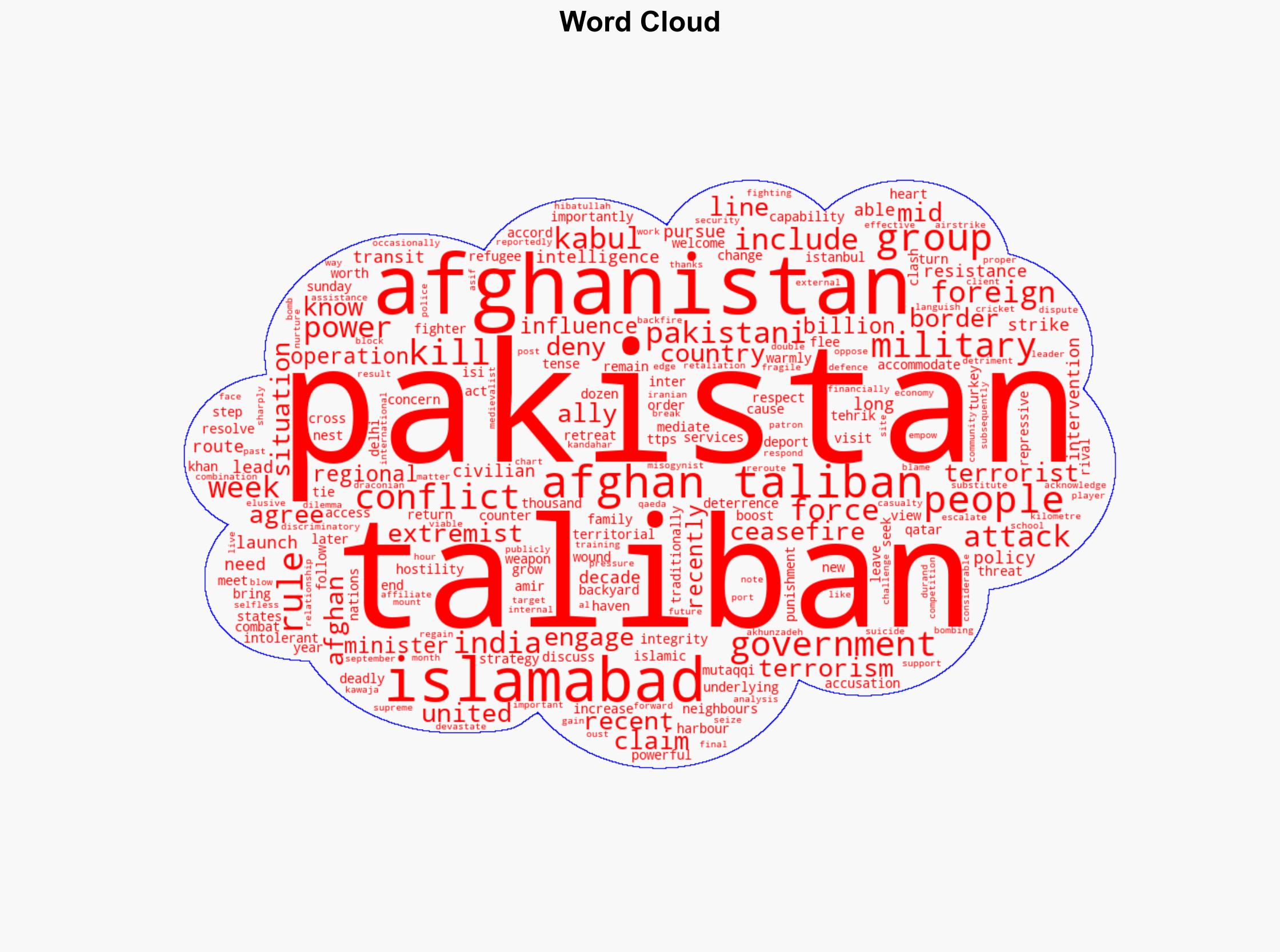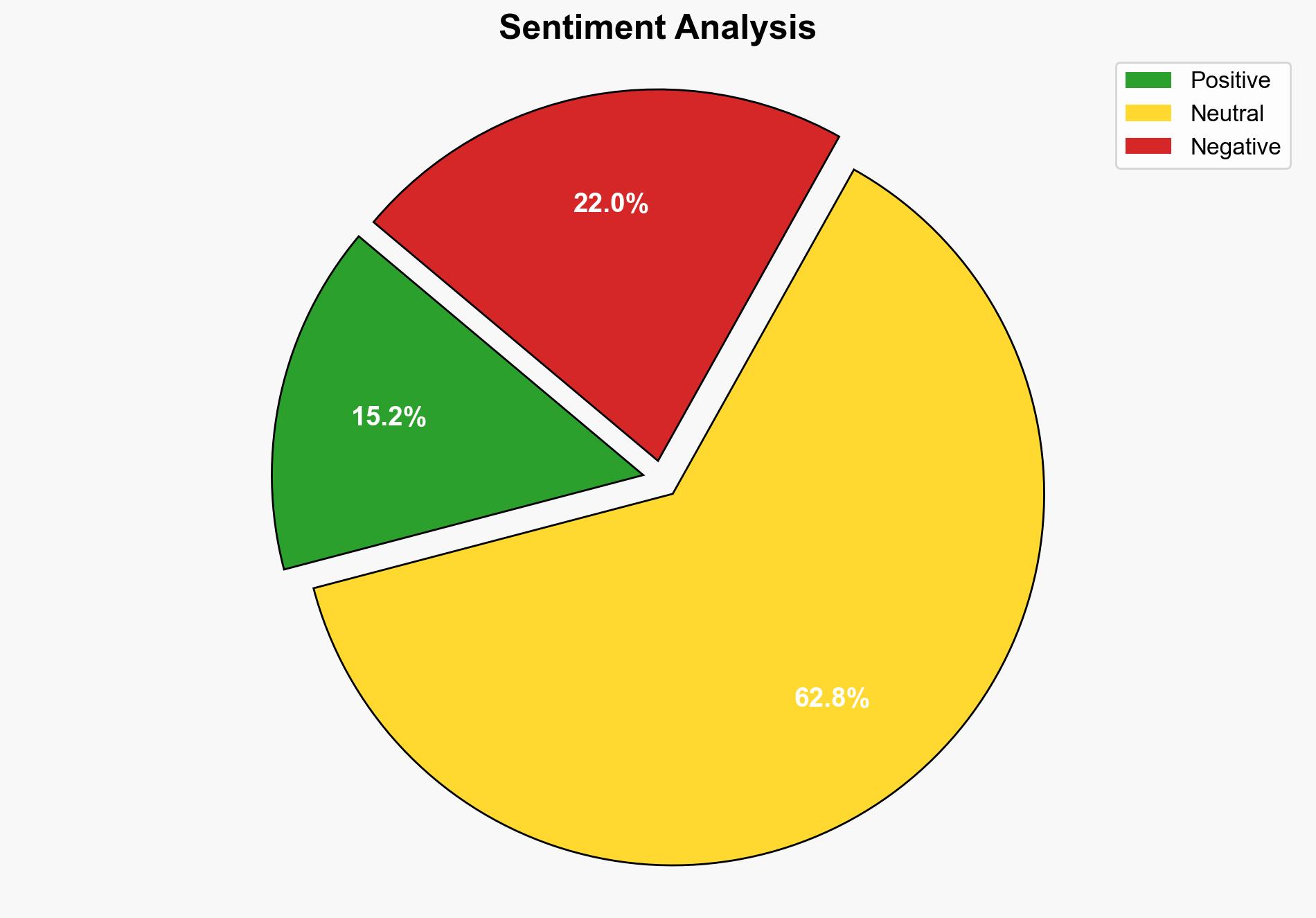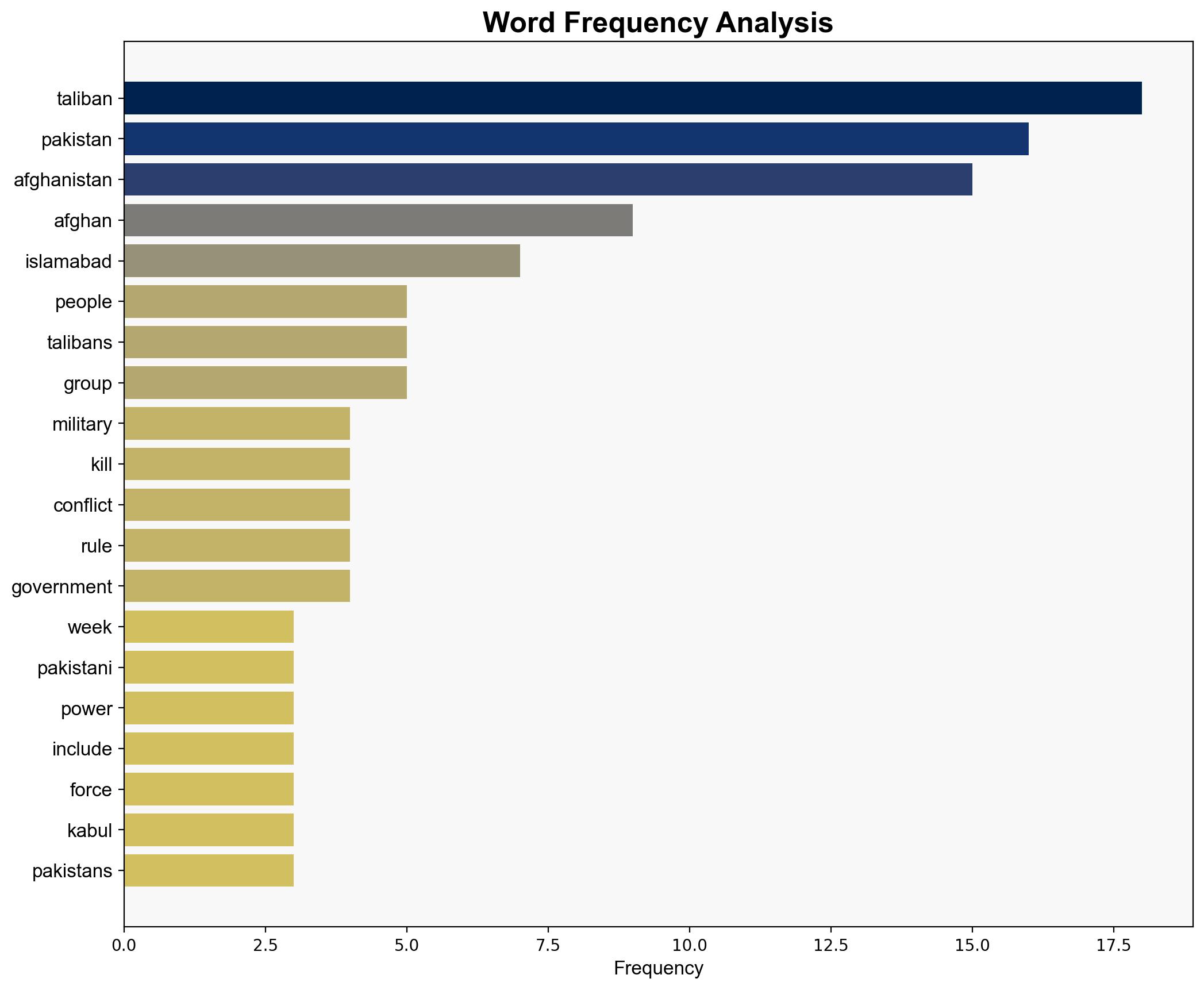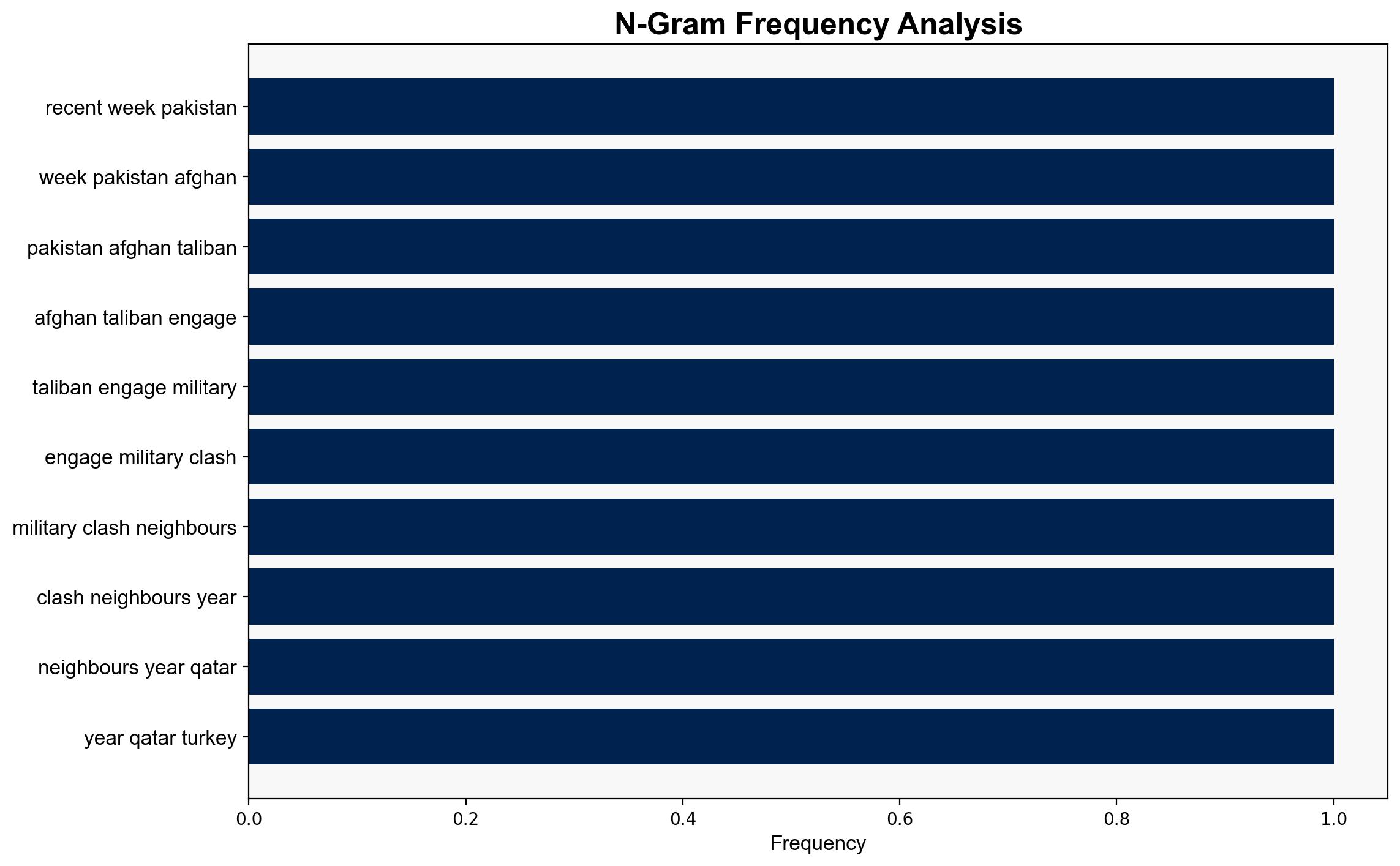Pakistan and the Afghan Taliban avoid a deeper war for now but how long can the peace hold – The Conversation Africa
Published on: 2025-10-20
Intelligence Report: Pakistan and the Afghan Taliban Avoid a Deeper War for Now but How Long Can the Peace Hold – The Conversation Africa
1. BLUF (Bottom Line Up Front)
The most supported hypothesis is that the current ceasefire between Pakistan and the Afghan Taliban is fragile and likely to be short-lived due to unresolved underlying tensions and external influences. Confidence level: Moderate. Recommended action: Engage in multilateral diplomatic efforts to address root causes and prevent escalation.
2. Competing Hypotheses
Hypothesis 1: The ceasefire will hold in the short term due to effective mediation by Qatar and Turkey, coupled with mutual economic interests in maintaining stability.
Hypothesis 2: The ceasefire is temporary, and hostilities will resume due to unresolved issues such as terrorism, border disputes, and geopolitical rivalries, particularly involving India.
Using Bayesian Scenario Modeling, Hypothesis 2 is more likely due to the persistent presence of the Tehrik-i-Taliban Pakistan (TTP) in Afghanistan, the Taliban’s ties with India, and Pakistan’s strategic interests in countering these threats.
3. Key Assumptions and Red Flags
Assumptions:
– Hypothesis 1 assumes that economic incentives and international mediation are sufficient to maintain peace.
– Hypothesis 2 assumes that historical animosities and strategic interests will override temporary diplomatic efforts.
Red Flags:
– The Taliban’s denial of harboring TTP fighters contradicts Pakistan’s claims, indicating potential deception.
– Lack of concrete measures to address terrorism and border disputes suggests unresolved tensions.
4. Implications and Strategic Risks
The continuation of hostilities could destabilize the region, impacting economic routes and increasing refugee flows. Escalation may draw in regional powers like India and Iran, complicating diplomatic resolutions. Cyber and psychological operations could intensify, exacerbating mistrust and misinformation.
5. Recommendations and Outlook
- Engage in multilateral diplomacy involving regional stakeholders to address terrorism and border issues.
- Enhance intelligence sharing and counter-terrorism cooperation with Afghanistan and other regional actors.
- Scenario Projections:
- Best Case: Sustained ceasefire leading to long-term stability through comprehensive peace talks.
- Worst Case: Full-scale conflict drawing in regional powers, leading to widespread instability.
- Most Likely: Intermittent skirmishes with periodic diplomatic interventions to prevent escalation.
6. Key Individuals and Entities
– Amir Khan Muttaqi (Taliban’s acting Foreign Minister)
– Hibatullah Akhundzada (Taliban’s Supreme Leader)
– Kawaja Asif (Pakistani Defense Minister)
7. Thematic Tags
national security threats, counter-terrorism, regional focus, geopolitical tensions





